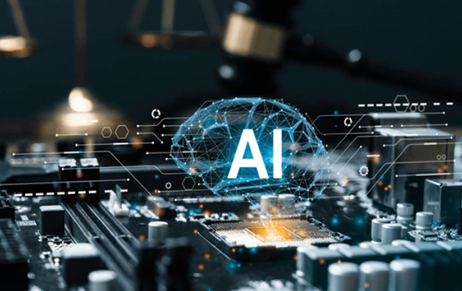The intellectual property (IP) licensing has gone a long way with the pace of technology…
Indian Cryptocurrency Saga: Regulation and IP Protection
Introduction
Cryptocurrency is a comparatively new word to the average Indian citizen despite the digital currency and the technology behind it i.e. blockchain being around for more than a decade with the establishment of the Bitcoin in 2008 as the first major cryptocurrency in the world.[i] Since then multitudes of different crypto currencies coming into existence, 10,295 different crypto currencies to be precise according to market cap and this number is still bound to increase.[ii] With India steadily coming to grips with concept of digital currency, it is bound to raise questions of ownership, legal protection and Intellectual Property law’s role in as it has been said ‘growth to the moon.’
India’s Crypto Saga
India’s use of cryptocurrency was noticed at the central stage in 2017 when the rise in the usage of crypto became so noticeable that the Reserve Bank of India along with the Ministry of Finance butted in the scene with a caveat for the general populace declaring that crypto is not legitimate or legal. However, it just a caveat and no legal action or repercussion was stated by the RBI that time.
In 2018 the RBI issued a circular imposing a blanket ban on cryptocurrency, prohibiting all the banks and financial institutions whether commercial or finance in nature to deal in digital currency or facilitating transactions for/on the same. RBI’s rationale behind this move, as cited by them, was to protect the interests of the people along with maintaining market integrity and keeping money laundering in check. This move wreaked havoc in the market leading prices to fall due to people selling their holding in India. The Internet and Association of India (IMAI) challenged the said circular before the Supreme Court alleging that the circular violated the principle of fairness and equality of opportunity. Moreover, the IMIA alleged that the circular was “manifestly arbitrary, based on non-reasonable classification and it imposes disproportionate restrictions.”[iii]
In March, 2020 the Supreme Court gave a verdict in this case in the matter of Internet and Association of India vs. Reserve Bank of India, it lifted the blanket ban on cryptocurrency which was imposed by the RBI through its 2018 circular. It was a welcome decision for crypto traders in India.
Recently, on 31 May, 2021 the RBI through another circular reiterated the point held in the IMAI judgment and asked banks to not refer to RBI’s 2018 circular anymore. This circular has again highlighted the current legal status of cryptocurrency in India i.e. unregulated.
There is special act in place in India for the regulation of Cryptocurrency. However, due to the nature of cryptocurrency some already existing Indian Laws may be applicable like Prevention of Money Laundering Act, 2002, Securities Contracts Act, 1956 etc.
Moreover, apart from regulation the legal uncertainty is also present in the sphere of Intellectual Property and cryptocurrency which I will discuss further.
Regulation of Crypto
The undisputable fact right now is that Crypto is unregulated and buying or selling crypto is not illegal. The government of India had plans to introduce a regulatory bill in the parliament titled ‘The Cryptocurrency and Regulation of Official Digital Currency Bill 2021.’ However, this could not be done as the discussions with a lot of stakeholders were not complete.
The Cryptocurrency and Regulation of Official Digital Currency Bill 2021 is aimed at banning all private digital currency and impose a regulated way in which a cryptocurrency can be introduced officially. This will cause a lot of cryptocurrencies to follow the official pathway set by the act to become legal in India if the act is passed.
Moreover, the RBI has its own plans of introducing its own official cryptocurrency under Central Bank Digital Currency (CBDC) when the bill becomes and act. The bill provides a buffer period during which the populace would be allowed to liquidate all its private crypto holdings after which mining, issuing and trading o=in private crypto will be penalized by the provisions of the bill.
Intellectual Property’s Tryst with Cryptocurrency
With the introduction of the regulation bill, cryptocurrency is bound to become a well-known term in India it is common question whether its unpredictability can be kept in check through determining ownership which can be done through IP protections like copyright, patent, and trademarks. It can be expected that when the regulation bills is enforced in India many start-ups which may come up using cryptocurrency technologies may resort to legal protection through IP laws for their methods and processes.
Bitcoin, the most famous cryptocurrency has not been patented. According to experts, it is the absence of IP protection that helps such cryptocurrencies to grow at such an extreme rate. However, personally I would say, it also works as a counter and it’s because of the IP that the growth and fall rate of Cryptocurrency is unpredictable and based on numerous external factors.
However, there are multiple criticisms for IP protections for cryptocurrency as it has its own self-policing mechanisms it does not need IP protection and because of this people argue that cryptocurrency must remain open source. The most probable thing that is going to happen is as cryptocurrency gains acceptance in India, the technology behind it i.e. blockchain gains utility outside of the financial sphere there will likely be attempts to use IP protection to apply ownership.
Conclusion
With the Indian Economy completely devastated from the second wave of the Novel Coronavirus it is a very lucrative time to add this uplifting factor of cryptocurrency into the market. This move is likely to induce multiple new start-ups based on blockchain and many more Indian Intermediary platforms apart from Wazirx. However, with the central bank also introducing its own cryptocurrency it is very much possible that elimination of intermediary happens as banks and financial institution involve themselves in cryptocurrency directly.
Author: Utkarsh Pratap Singh, an intern at IIPRD. In case of any queries please contact/write back to us at aishani@khuranaandkhurana.com.
References:
[i] Satoshi Nakamoto, Bitcoin: A Peer-to-Peer Electronic Cash System (2008), https://bitcoin.org/bitcoin.pdf.
[ii] Coin Market Cap, https://coinmarketcap.com/all/views/all.
[iii] Internet and Association of India vs. Reserve Bank of India, 2020 (2) CTC 528.



